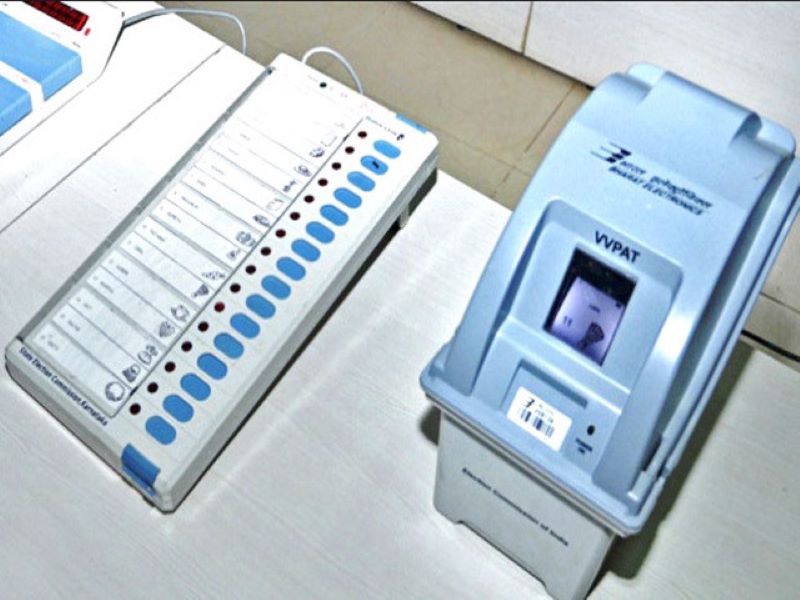 EVM-VVPAT
EVM-VVPAT
Supreme Court rejects plea seeking 100 pct votes verification on EVMs, rules out returning to ballot papers
New Delhi: In a significant development Friday morning as the country commenced voting in the second phase of the 2024 Lok Sabha election, the Supreme Court has given Electronic Voting Machines (EVMs) a big vote of confidence.
A two-judge bench rejected petitions seeking 100 percent verification of votes cast on EVMs using the VVPAT, or Voter Verifiable Paper Audit Trail.
"We have discussed, elaborately, all protocols and technical aspects (and) we reject all pleas. Blindly distrusting a system can lead to unwarranted suspicions," Justice Dipankar Datta and Justice Sanjiv Khanna said.
The judges rejected the plea to return to paper ballots.
The court, however, passed two directions to the poll body in this regard.
The first direction was that after completing the loading of symbols into the machine, the SLU, or symbol loading unit, should be sealed and stored for at least 45 days.
"On completion of the symbol loading process in EVM, undertaken on or after June 1 (the final phase of polling), the SLU should be sealed and secured..." the court said.
The SLU storage containers must be sealed and the seal is to be signed by candidates.
"The sealed containers containing the SLUs shall be kept in storerooms, with the EVMs, (for) at least for 45 days post declaration of results," the court explained.
Each microchip is a one-time programmable, or masked, chip, which cannot be overwritten, meaning the preloaded software cannot be reprogrammed in a particular manner.
The second was that the burnt memory in the EVM microcontroller should be checked by a team of engineers following the declaration of the results, in case candidates make such a request.
This request, which can be made by candidates placing second and third in the election,must be made within seven days of declaration of results, the court observed.
The expenses for this verification will have to be borne by the candidate, the court said.
The cost will, however, be refunded if the EVM is found to have been tampered with.
The second was that the burnt memory in the EVM microcontroller EVM must be checked by a team of engineers - after results are declared - if candidates make such a request.
This request - which can be made by candidates placing second and third in the election - must be made within seven days of declaration of results, the court said.
The expenses for this verification will have to be borne by the candidate, the court also said. The cost will, however, be refunded if the EVM is found to have been tampered with.
The Supreme Court also suggested the Election Commission explore the possibility of using a machine to count VVPAT slips.
Currently, VVPAT slips of five randomly selected EVMs in every Assembly segment are verified.
The VVPA is an independent system attached to the EVM that allows voters to check if their votes were cast as intended.
When a vote is cast, a slip is printed containing the serial number, name and symbol of the candidate, and this is shown to the voter - from behind a transparent screen - for seven seconds, after which the machine stores it in a sealed box.
Support Our Journalism
We cannot do without you.. your contribution supports unbiased journalism
IBNS is not driven by any ism- not wokeism, not racism, not skewed secularism, not hyper right-wing or left liberal ideals, nor by any hardline religious beliefs or hyper nationalism. We want to serve you good old objective news, as they are. We do not judge or preach. We let people decide for themselves. We only try to present factual and well-sourced news.







